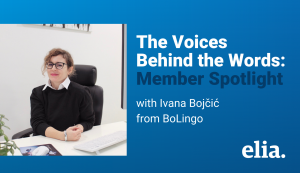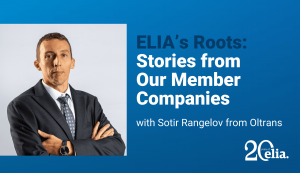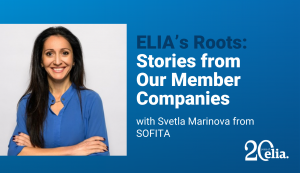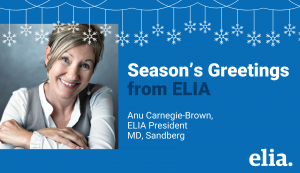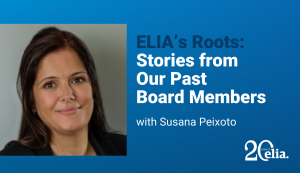How academic translators and editors can make themselves an invaluable part of the publication process. This blog is based on a presentation given by Avi Staiman, CEO of Academic Language Experts, at Elia’s Together 2018 conference in Athens, Greece.
The Goal: Preparing Research for Publication
Academic scholars want to publish their research in respected journals as quickly and efficiently as possible. In order to accomplish this, many scholars rely on academic editors and translators to help them prepare their research for publication. As professional providers of scientific editing and translation services, our goal should be to become an invaluable part of the publication process. However, in order to ensure this happens we need to understand the entire publication process (even those stages we aren’t directly involved in). Once we learn and develop our skills and understand our role in the publication environment, then we can make a significant contribution and become long-term partners.
Client Profile: Skeptical and Perfectionist
Academic scholars want to publish their research in prestigious academic fora for a number of reasons. First, they want to maximise the impact of their research and make sure that it reaches a global audience. In addition, scholars’ career development and promotion often depend on the frequency and quality of their peer-reviewed publications. Therefore, scholars tend to be perfectionists not only about what is written in their research, but also how it is written.
Scholars who need to write or publish in a foreign language are at a particular disadvantage and this community accounts for the majority of our work (non-native English speakers for the most part). Researchers are often nervous because they don’t know if the translator or editor will understand their writing and thus convey it both accurately and eloquently (they also may not understand how much of a challenge this is). Scholars also may not feel fully confident proofreading the work themselves and rely on colleagues or friends to give them feedback. In the end, they want the journal editor to receive a favourable impression of their research and they are relying on us to help them accomplish that.
The Challenge: Lightening the Burden
The lifespan of one research project can stretch over a number of years and often the role of the editor or translator begins only after the manuscript has been completed. Therefore, it is important to note that academic editors and translators generally come in at a stage whereby the research work and the writing have been completed, however the paper has not yet been accepted to a specific journal. In fact, many scholars prepare their research without even knowing where they will submit it to.
Regardless of the final destination, academic papers generally undergo a thorough peer review process during which they are judged based on a number of different criteria. One of the most important components of any article is the quality of its writing: Is it clear and coherent? Is the language used not only grammatically correct, but also eloquent and persuasive? Will readers understand the nuance in specific turns of phrase or expressions? Are there cultural references that need to be adapted for the target audience? Addressing these issues with confidence will lighten the load for our clients and make our services invaluable.
The Process: Ask Questions and Do Your Homework
When a scholar reaches out to us to work on their manuscript it is important that we clarify exactly what they want us to help them with. Do they need translation and linguistic editing alone, or do they also need us to format the article according to a specific style sheet? The answer to this question may depend on whether they have chosen a journal ahead of time or are only deciding now.
In addition, do they want us to ‘get our hands dirty’ and use our own creative license to improve flow and syntax in the target language? Or should we be more conservative and maintain the structure and syntax of the source text to the greatest extent possible? Is additional research necessary to ensure that sources are quoted in the right language or that the correct official book titles are used? This background work will help us clarify exactly what the scholar expects so that we can plan and price accordingly.
The Solution: Specialisation and Added Value
Our role as academic editors and translators (or authors’ editors) is to surpass our clients in our familiarity with the publication process. It begins by picking a field (or fields) of expertise or speciality. This requires us to decide carefully which fields we are most familiar with or enjoy the most and then enrich our knowledge by learning the specific academic theories, terminology and literature. Generally speaking, we should focus on a single language set and not offer services in language sets over which we don’t have a 100% command. In addition, we need to see which style sheets are common to our speciality and make sure we master them.
Specialist knowledge combined with an understanding of the publication process infuse our services with genuine ‘added value’. Instead of simply being a generic translator or editor, we are now experts in our field who take on the role of advisor. This process doesn’t happen overnight but it also doesn’t necessarily need to take many years. Aptitude for language and writing, attention to detail, and a passion for research and scholarship are the perfect formula for scholars looking to hire a language expert.
About the Author
Avi Staiman is the founder and managing director of Academic Language Experts. He founded the company in 2011 to help academic scholars publish their research around the world. Prior to founding the company, Avi worked as a translator and editor in various humanities and social sciences fields. Avi can be reached at avi@aclang.com.
